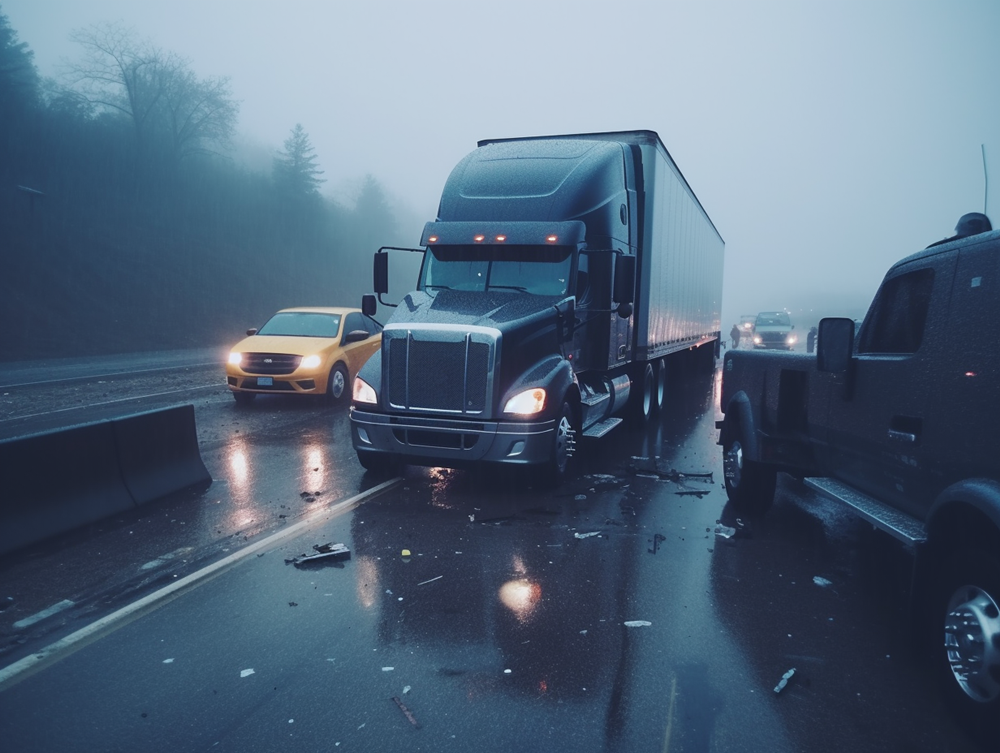Salt Lake City, UT (July 1, 2025) – A crash involving a semi-truck caused major disruption Monday afternoon in the Ball Park neighborhood of Salt Lake City. Drivers in the area experienced significant delays as first responders worked to help the injured and clear the scene.
The accident occurred on June 30 at approximately 4:50 p.m. near the intersection of West 1700 South and Interstate 15 North. Authorities confirmed that at least one person was hurt in the collision and received treatment before being transported to a local hospital for further care. Officers and investigators remained on scene to direct traffic and determine what led to the crash involving the large commercial vehicle.
We wish a quick and complete recovery to everyone hurt in this collision.
Truck Accidents in Utah
 Truck accidents across Utah often result in severe injuries or fatalities due to the massive size and weight of commercial vehicles. According to the Utah Department of Public Safety, accidents involving semi-trucks and other large vehicles can shut down major roadways for hours and create hazards for everyone on the road. Here in Utah, drivers are reminded to always give trucks plenty of space and be extra cautious when driving near them.
Truck accidents across Utah often result in severe injuries or fatalities due to the massive size and weight of commercial vehicles. According to the Utah Department of Public Safety, accidents involving semi-trucks and other large vehicles can shut down major roadways for hours and create hazards for everyone on the road. Here in Utah, drivers are reminded to always give trucks plenty of space and be extra cautious when driving near them.
Given this recent incident, here are a few things everyone should know about what makes truck crashes so dangerous:
- Greater Impact Force: Due to their size, semi-trucks generate far more force in a collision than smaller vehicles. This often results in catastrophic injuries, multiple-vehicle pile-ups, and long-lasting road closures.
- Longer Stopping Distances: Trucks need more distance to come to a complete stop. When drivers cut in front of a truck or brake suddenly, it can lead to rear-end crashes that are difficult for truck drivers to avoid.
- Wide Turns: Large trucks make wide right turns, which can trap unsuspecting cars in a “squeeze play.” Drivers should never try to pass a truck on the right when it’s turning.
- Driver Fatigue: Truck drivers often spend long hours on the road. Fatigue can impair reaction time and decision-making, increasing the likelihood of an accident.
- Cargo Spills and Rollovers: Improperly secured cargo can shift and cause rollovers, spills, or even fires. This can block traffic lanes and create dangerous driving conditions for others nearby.
If you’ve been hurt in a crash with a truck or semi, it’s crucial to connect with an experienced truck accident attorney as soon as possible. A Salt Lake City truck accident attorney can help protect your rights, investigate the crash, and negotiate with trucking companies and insurers on your behalf.
At Flickinger • Boulton • Robson • Weeks, we know how stressful and life-changing a truck accident can be. Since 1993, our Utah firm has handled serious injury cases with dedication and compassion, providing every client with personal attention from an attorney—not just a paralegal. We never charge upfront fees and our fair pricing helps keep your focus on healing. Call our team today at (801) 500-4000 for your free consultation and learn how we can help you get the compensation you deserve.



